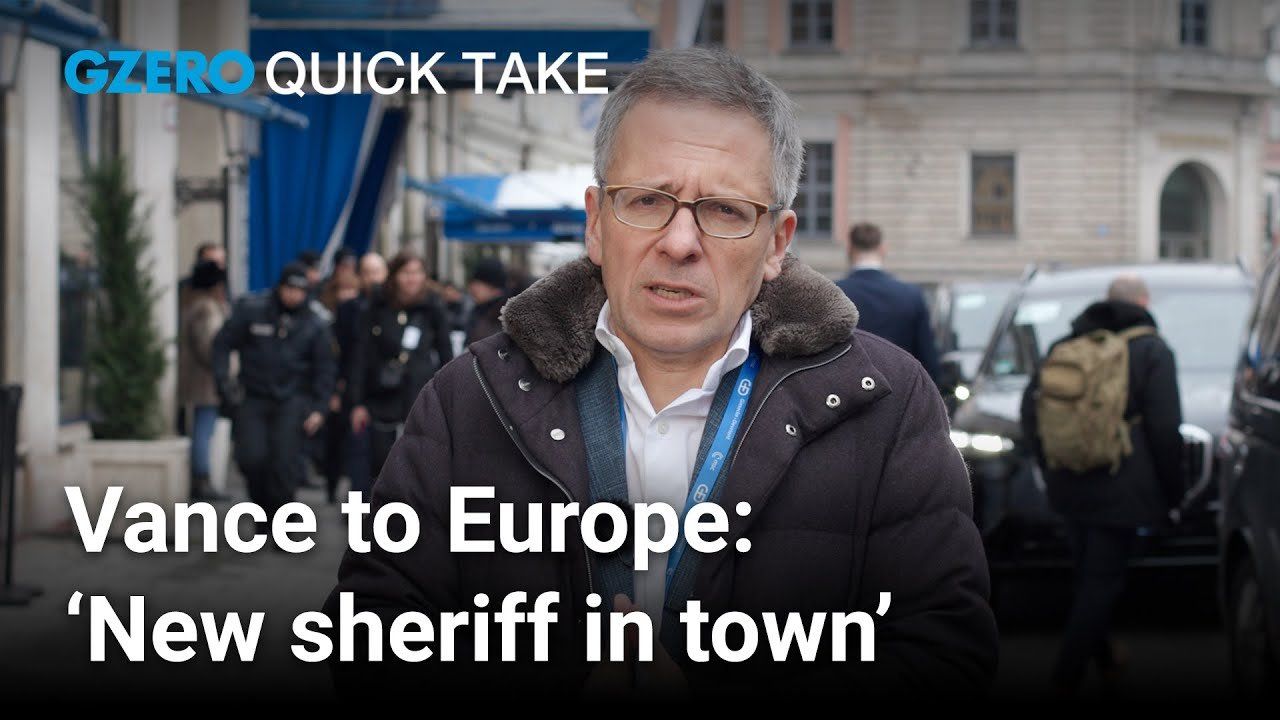
Ian Bremmer's Quick Take: A Quick Take from the Munich Security Conference. Just finished with the opening speech for Vice President JD Vance. Before that, Ursula von der Leyen, President of the European Commission. Literally standing room only across the conference. I can't remember the last time it was so busy. And so busy because so many people believe that the NATO and the transatlantic alliance are at a crossroads, are facing a time of crisis.
First, the good news. The recognition on the part of the Europeans that action on their part is urgent is pretty consistent across the board. That a 2% spend on defense is not enough, that they have to take much more of a leadership role on Ukraine. That they have to be much more competitive in terms of growth. That indeed many of the criticisms that are being levied on the Europeans by Trump, as well as by Democrats and Republicans in the United States are things they have not taken adequately seriously, and now they do.
I think the level of urgency, the recognition of crisis is true across the board. The willingness to take action is a different story. We will see that over the course of the coming months, but there's no question it is significant.
Go beyond that to what JD Vance had to say. This speech did not include a mention of Russia and Ukraine. This is a speech to the Munich Security Conference to mention separately of elections in Romania overturned by their constitutional court, politicized questions about that to be sure. But not a speech that resonated or landed well for the Europeans in the audience. They were getting a lecture on freedom of speech and democracy from the United States. They were not getting a sense of how strong and secure the alliance needed to be.
JD Vance was talking about democracy for as opposed to protecting from. The Security Conference is of course much more about protecting from. It's about what kind of external threats exist to NATO, which is the reason it exists. And to the extent that Europeans are concerned about the future of NATO, a lot of it is coming from inside the house, a European sense that the Americans are not committed to them anymore. In fact, Defense Minister of Germany, Pistorius actually yelled out during JD Vance's speech, "This is unacceptable." I've never seen anything like that from a European leader during a major US plenary here at the Munich Security Conference before coming here for about 15 years. So that was quite surprising.
Having said all of that, when the vice president met with the German federal president earlier in the day, he was much more willing to talk constructively about working together on Ukraine, especially in terms of having the Ukrainians at the table, including the Europeans. How essential it'd be for everybody to work together to ensure that the Ukrainians can be reconstructed. That they'll have security guarantees and defense.
So to a degree, what we are seeing is a speech for Vance's domestic audience in the United States, as well as some of the anti-EU Euro-skeptic populace in Europe, including the AfD, the Alternative for Deutschland, who, of course, their support is going to the polls in a couple of weeks just like the rest of this country, Germany. But still, the level of tension here is extremely high. The level of trust has been reduced. And pretty much everyone I've talked to in this conference believes that the Russians today are in a considerably stronger position than they were in 48 hours ago. The Chinese are in a stronger position than they were in 48 hours ago. And that's something pretty much nobody in this conference wants to say, wants to hear. That's it for me. I'll talk to you all real soon.